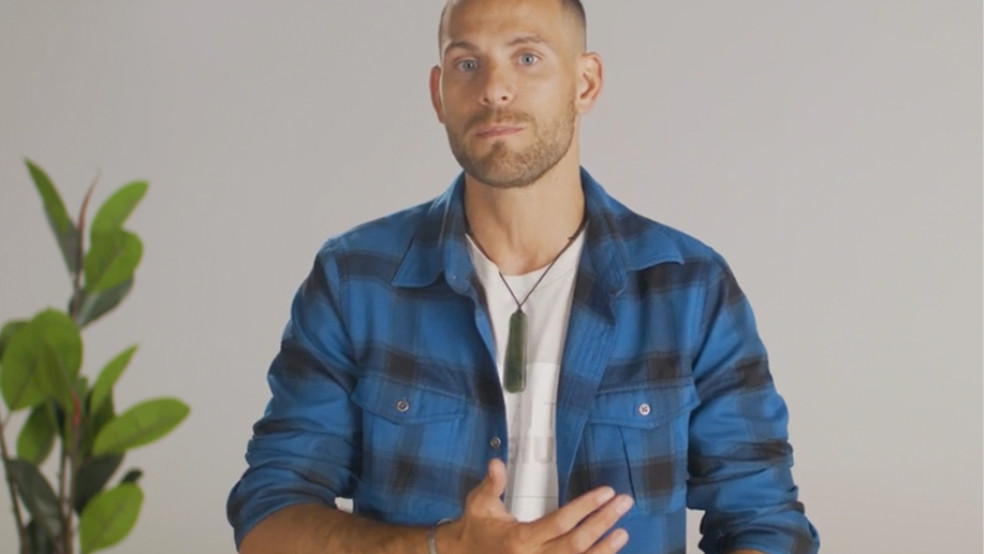
Planning & budgeting
Saving & investing
KiwiSaver
Tackling debt
Protecting wealth
Retirement
Home buying
Life events
Setting goals
Money tracking
Plan your spending with a budget
Getting advice
Studying
Get better with money
What pūtea beliefs do you have?
How to build up your emergency savings to cover unexpected costs
How to save your money
How to start investing
Find a financial adviser to help you invest
Your investment profile
Compound interest
Net worth
Types of investments
Term deposits
Bonds
Investment funds
Shares
Property investment
How KiwiSaver works and why it's worth joining
How to pick the right KiwiSaver fund
Make the most of KiwiSaver and grow your balance
How KiwiSaver can help you get into your first home
Applying for a KiwiSaver hardship withdrawal
How to use buy now pay later
What you really need to know before you use credit
How to get out of debt quickly
Credit reports
Know your rights
Pros and cons of debt consolidation
Credit cards
Car loans
Personal loans
Hire purchase
Student loans
Getting a fine
What happens if I start to struggle with moni?
How to build up your emergency savings to cover unexpected costs
Cryptocurrency
How to protect yourself from fraud and being scammed
About insurance
Insurance types
Insuring ourselves
Wills
Enduring powers of attorney
Family trusts
Insuring our homes
Losing a partner
Redundancy
Serious diagnosis
How to cope with the aftermath of fraud
Separation
About NZ Super – how much is it?
When you’re thinking of living in a retirement village
How to plan, save and invest for retirement
Manage your money in retirement
Find housing options in retirement
Four approaches to spending in retirement
Planning & budgeting
Saving & investing
How to build up your emergency savings to cover unexpected costs
How to save your money
How to start investing
Find a financial adviser to help you invest
Your investment profile
Compound interest
Net worth
Types of investments
Term deposits
Bonds
Investment funds
Shares
Property investment
View all
KiwiSaver
Tackling debt
How to use buy now pay later
What you really need to know before you use credit
How to get out of debt quickly
Credit reports
Know your rights
Pros and cons of debt consolidation
Credit cards
Car loans
Personal loans
Hire purchase
Student loans
Getting a fine
What happens if I start to struggle with moni?
View all
Protecting wealth
How to build up your emergency savings to cover unexpected costs
Cryptocurrency
How to protect yourself from fraud and being scammed
About insurance
Insurance types
Insuring ourselves
Wills
Enduring powers of attorney
Family trusts
Insuring our homes
Losing a partner
Redundancy
Serious diagnosis
How to cope with the aftermath of fraud
Separation
View all
Retirement
Home buying
Reading time: 7 minutes

Are you using buy now pay later loans like Afterpay or Zip? There are a few things to know to make sure you stay on top of your spending.
Buy now pay later (BNPL) can be a helpful way to spread out the cost of something over time with no charges added on. You pay a part up front, get the goods straight away, and then pay off the rest later. But they’re a type of debt and you can quickly get in trouble if you take on too many at once and start missing payments.
Buy now pay later options like Afterpay or Zip are popular with both shoppers and retailers. They’re widely available when shopping online or instore. Here’s how they work:
For example, you might want to buy a $200 pair of trainers in a shop that offers Afterpay. You download the app, enter your details, and are approved. You pay $50 up front, take your trainers home, then make three fortnightly repayments of $50 each.
If you miss a repayment because you don’t have enough funds in your bank account when Afterpay goes to deduct each $50, you are charged an initial late fee of $10 and a further $7 if the payment remains unpaid 7 days after the due date.
BNPL is a type of debt. It’s a way of borrowing without interest or fees (the retailer covers these costs) but having too many at once can be hard to keep track of and tricky to handle. And if you miss repayments, you’ll be charged late fees.
How to use buy now pay later without getting trapped
Going into debt is always a bit risky, since our circumstances might change and it becomes difficult to repay. Sometimes it’s hard to tell what might happen.
The aim is to avoid all late fees, otherwise we end up paying more for something than we intended to. These penalties do add up, as high as the following dollar amounts for each purchase:
If you have too many of these at the same time, you may find yourself sacrificing too much of your life in order just to meet all your repayments – which is stressful!
The other catch with buy now pay later options is that we can get “upsold” on buying more than we planned to.
For example, buying those $200 shoes and only having to pay $50 at first, it can feel like we can afford to spend more. Buying another $200 item with the same upfront $50 payment, for example, means that we’ve actually spent $400 in the end. Buying a third thing feels like we’re just spending $150 at the time, but we’ve just committed to paying $600!

Keep the big picture in mind, not just that small first payment.
How much is it costing overall?
You’ll be charged a late fee. If you keep missing repayments, these penalties can go as high as the following amounts per purchase:
This means your purchases become a lot more pricey than you initially thought. Unfortunately, in order to not miss repayments and avoid these late fees, you may even find yourself sacrificing other parts of your life – which is stressful!
By law, BNPL providers must offer hardship assistance. If you're struggling, contact the provider immediately. They may be able to extend your repayment deadlines, waive those late fees or modify your repayment plan.
Yes. You’ll want to avoid this so you’ll have a good credit score and can borrow more in the future. If you find yourself unable to repay entirely, your debt will be referred to a collection agency.
You must be 18 years or over to use them and have a debit or credit card. Some services request your driver’s licence details when you sign up. They will also ask for your full name, home address, email address and mobile number.
Yes. Buy now pay later is a way to spread out the cost of something over four fortnightly payments. You pay the first up front, then the rest of your payments automatically come out of your linked bank account or credit card in the weeks that follow.
Both. Buy now pay later can be used in a store when you’re making a purchase. You can even download the app at the till and sign up on the spot.
Most maximum limits on BNPL run from $1000 to $1500, but then can edge up higher as you build up more history with the lender.
Repayments are typically scheduled with you paying one part up front, and then three additional repayments each fortnight.
Your first payment will be straight away when you get what you’re buying, and the rest of the repayments will be taken out automatically from your bank account or your credit card.
A typical limit with a buy now pay later company is up to $1500, and you can borrow with more than one buy now pay later company. But having too many of these going at one time is tricky to manage – it’s much easier and safer to have only one going at a time.
Some buy now pay later companies allow you to choose which day your repayments are due, but many don’t, so it’s good to make sure it will work for you.
Guide
People use personal loans to pay for all kinds of things – weddings, renovations, holidays or consolidating their debts. They’re…

Guide
With an HP we can take home a product and use it while we’re paying it off. It can seem…

Guide
Credit cards are an easy way to pay for things with a quick swipe or tap, but they can be…

Guide
The longer we take to pay off debt, the more it costs us. So if there’s room in the budget,…

Guide
Borrowing to study can be a great opportunity, although it’s important not to borrow more than we need.

Guide
Understanding your rights as a consumer and as an investor can make a big difference should things go pear-shaped.

Guide
Debt comes in many forms – credit cards, hire purchase, car loans, personal loans, mortgages, student loans. There's no shortage…

Guide
No-one likes fines, but the quicker we pay them the better off we’ll be. Unpaid fines can end up costing…

Guide
With things like buy now pay later loans or a credit card, shops make it too easy to buy. Here’s…

Guide
‘Consolidating’ debt means taking out a new loan to wrap all our existing debts together and pay them off at…

Use verification code from your authenticator app. How to use authenticator apps.
Code is invalid. Please try again
Don't have an account? Sign up
Or log in with our social media platforms


A free account gives you your very own space where you can save your tools and track your progress as you get ahead.
Or sign up using Google:



